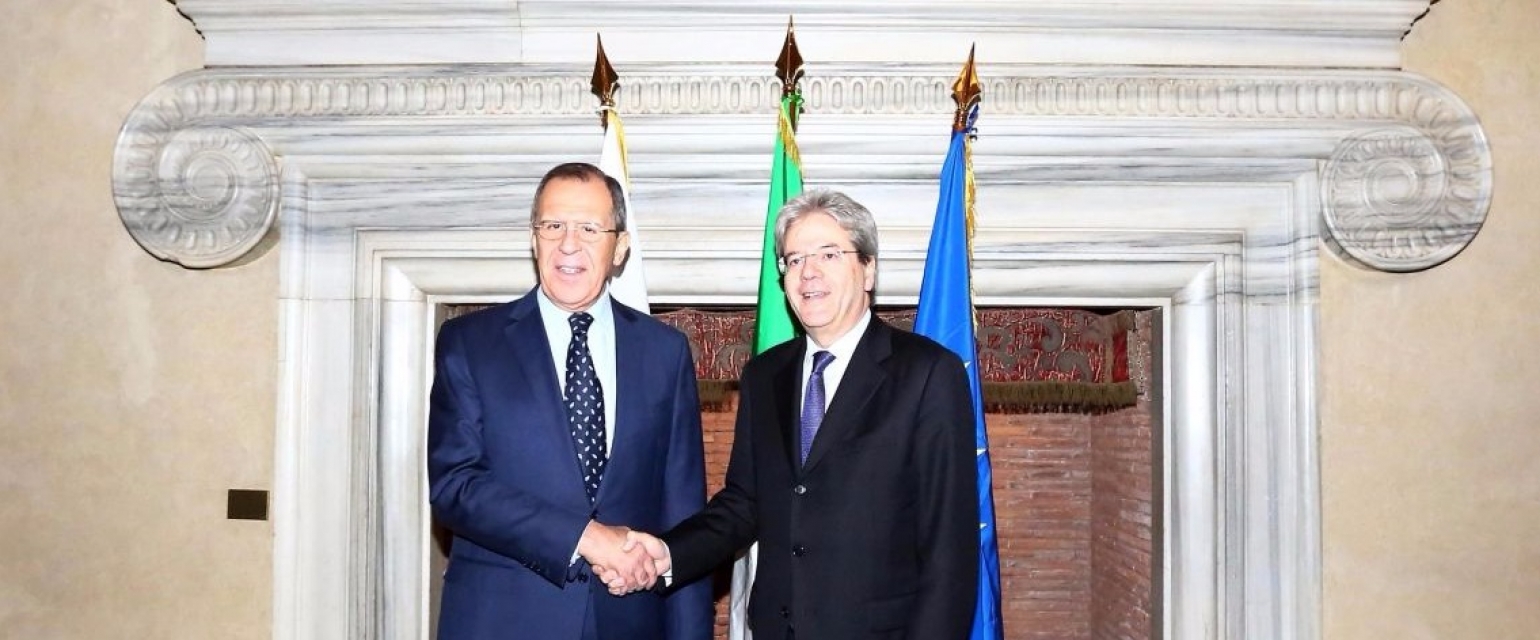

Sergey Lavrov's diplomatic visit to Italy, Ukraine's looming debt default and Moscow’s controversial decision to ignore some rulings of international courts - all this made headlines.
Last week, right before Foreign Minister Sergey Lavrov's diplomatic visit to Italy, Rome announced that it would temporarily block the renewal of EU sanctions against Russia. In the meantime, the issue with Ukraine's refusal to repay its debt to Russia has not been resolved, and it became clear that a compromise was not likely to be found before the end of the year. Finally, another important development was the change in Russian legislation that now establishes the priority of national law over international court rulings.
Italy takes a stand against the renewal of sanctions
On Dec. 9, the EU made an unexpected move and did not automatically renew sanctions against Russia. The initiative was blocked by Italy. Rome stated that the issue was extremely important, so it needed to be discussed at the top level first, for example, on Dec. 14 at the Foreign Affairs Council or on Dec. 17-18 at the European Council.
Clearly, this is just a delay. The sanctions are likely to be prolonged. Still, the Italian protest introduces a number of pertinent elements into the sanctions war between Russia and the West.
First, after Rome's public act of defiance, the EU can no longer conceal that its members have very different opinions on sanctions in particular, and Russia-Europe relations in general. Europe understands that the conflict with Russia needs to be resolved, for it is detrimental to both Brussels and Moscow. It is important to point out that Italy's actions create a major precedent.
Second, admitting that the situation is ambivalent and needs to be discussed can lead to an interesting conundrum in February 2016, when Kiev fails to meet the deadlines for passing a number of regulations required under the Minsk Protocol.
It is possible that the West will again blame Russia for the disruption of the peace process, for it is common knowledge that failure to fulfill the conditions of the Minsk Protocol is the official reason for keeping sanctions against Russia.
However, if the disagreement over Russia widens the gap between the EU members, one of them might pose a logical question, "If Ukraine is jeopardizing the agreement, why should Russia be punished for it?" And neither Brussels, nor even Washington will be able to come up with an answer.
Continue reading at Russia Direct
Heading into the weekend, the leaders and diplomats of the twenty countries with the biggest economies were busy preparing for the G20 Summit, which is taking place in Antalya, Turkey. There are many issues on this year’s agenda – from problems in the world economy and finance to refugee issues, the fight against terrorism and resolving the Syrian crisis. However, in light of the Nov. 13 Paris terror attacks , the issue of fighting terrorism and, in particular, the Islamic State in Iraq and Syria (ISIS), has dominated the agenda of the G20 Summit.
Tensions within Saudi Arabia and on its borders keep worsening. In the meantime, the young Crown Prince, who holds power over most vital domestic and external policies, continues multiplying mistakes. As was expected, 2017 witnessed the two mutually reinforcing tendencies. First, Prince Mohammed bin Salman, son of the current Saudi King, held on to his course of strengthening his positions in power. Second, tensions kept increasing within the royal family in the face of the upcoming change of the order of succession to the throne.
The final month of the year was not an easy one for Russian diplomacy. In December, rising tensions, combined with Russia’s willingness to respond firmly to the growing challenges of international politics, dominated the geopolitical agenda. Against this backdrop, Moscow keeps signaling its readiness to enter the negotiation process on a wide entire range of international issues, from Ukraine to Syria
Indeed, Russia is not completely a European country and cannot surmount its un-European living conditions for the objective reasons. The West has difficulty understanding this, though – strangely enough. More importantly, the Russian historic experience is unique – it may not be transposed to other countries, because there are no other countries like Russia.